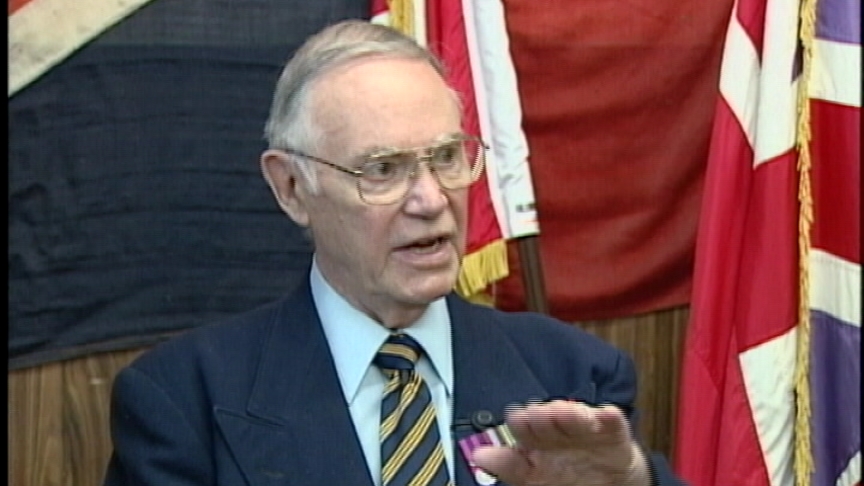Caught and tortured
Heroes Remember
Caught and tortured
On the 1st of July, 1943, the Red Cross appeared in Sham Shui Po
and the Japanese were going to show the Red Cross how well we
were being treated and so on, so they ordered us to go down and
play soccer on the field in front of the Sham Shui Po barracks,
great, huge field, and I was walking from my billets down to the
field when I passed by the ration depot and all of a sudden I
looked over and there were about three or four Japanese and one
Chinese chap standing there and when I looked over, the Chinese
chap pointed at me and the three or four Japanese chaps rushed
over behind me with fixed bayonets and told me to go over to the
depot where I would be told something. When I got over there,
they, they didn't really tell me anything except that they
handcuffed me and put me in the back and on the, gave me a
little slapping around and a few little points with the bayonet
and I was taken from there down to Jund (sp) Armoury
Headquarters for questioning. But all this was a result of the
truck driver telling them that it was I who was receiving and
sending messages to the outside.
Related Videos
- Date modified:




